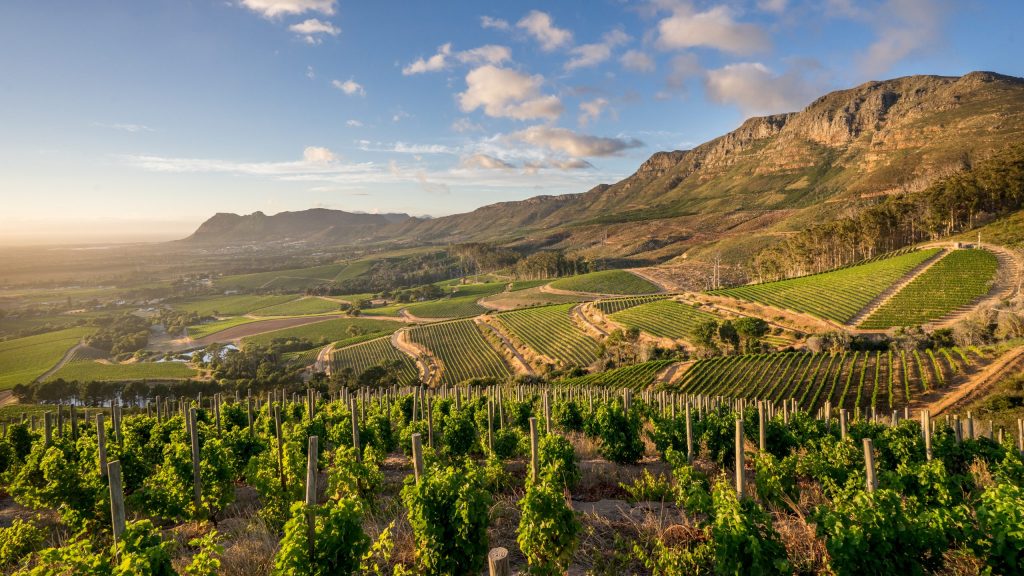There are three reasons to go on the Constantia Wine Walk: a beautiful stroll, intriguing history, and fabulous tastings.
South Africa has the second oldest New World wine industry at 365 years; Chile has the oldest, with its first recorded vintage in 1551.
On 2 February 1659, Jan van Riebeeck wrote in his diary: ‘Heeden is Gode loff van de Caepse druyven d’eerste mael wijn geparst’ (Today, praise be to God, wine was made for the first time from Cape grapes). On that day, the first wine made on South Africa soil was bottled, from vines the governor had had planted in 1655.
It’s been a bumpy ride of ups and downs, but today the Cape Winelands produce some of the world’s most sought-after wine. It also must be noted that some fine wines are coming out of the KwaZulu-Natal Midlands, and the estates in that region are well worth a visit.
But in the Cape there is a captivating way to learn about the history of wine in the country – the Constantia Wine Walk.
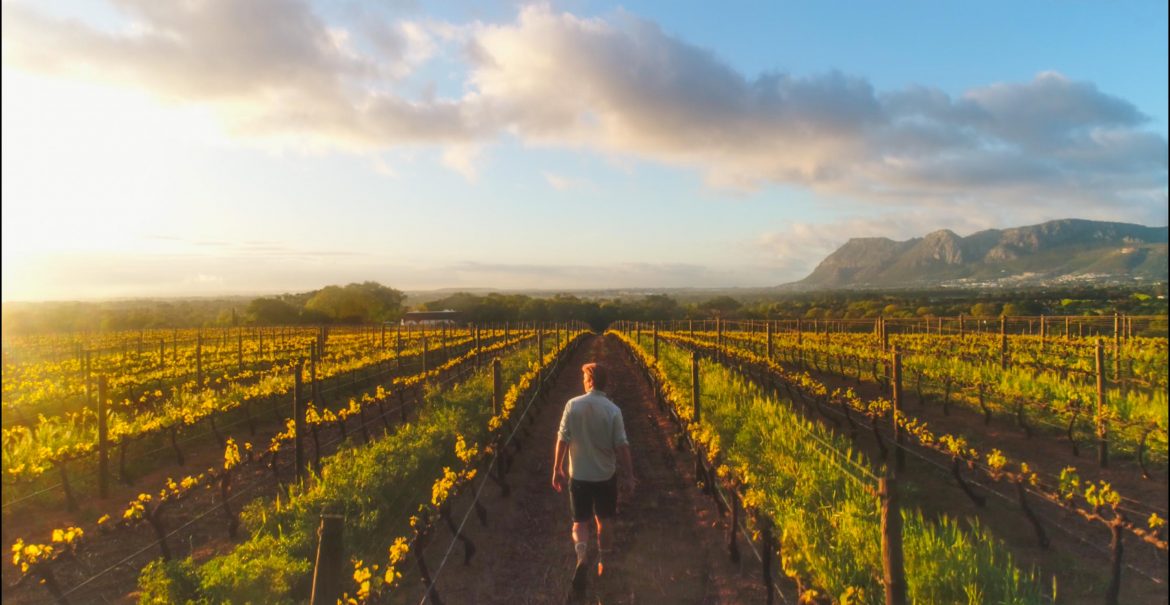
Lee@AfricanLynxTravel
Founder Matt Sterne is an archive of information, weaving the story of Cape wine with the walk through the vineyards to create a tapestry of the Constantia Valley. South African wine has a fascinating history, filled with colonists, freed slaves, writers, and even royalty.
‘Queen Victoria drank a glass each night, and Napoleon drank a bottle a day,’ says Matt. In her novel Sense and Sensibility, Jane Austen recommends ‘A little Constantia for its healing powers on a disappointed heart’, and in The Mystery of Edwin Drood, Charles Dickens writes of ‘the support embodied in a glass of Constantia’.
Matt tells these stories as you meander through the vines, the chain of mountains running down the peninsula a staggering backdrop. Constantia’s history may have been very different were it not for the son of a freed slave, he says mysteriously. ‘Constantia may not have even continued to exist were it not for his influence.’
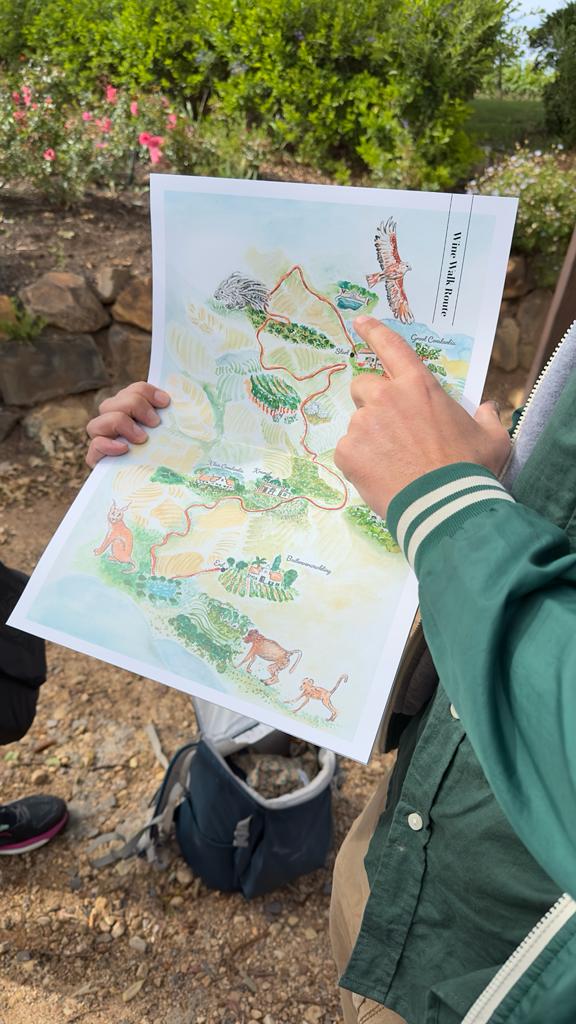
Lee@AfricanLynxTravel
And with that, the legends of this beguiling place unfold. He tells tales of sumptuous feasts and wild Great Gatsby-style parties, of terrible fires, and of Amazonian warriors. Of resilience and tenacity, of riches and rags.
You also learn about the wines made in this cool climate, the Constantia Valley terroir creating poetry in a glass.
The walk kicks off at Groot Constantia, early-ish – the sun is well in the sky, but it’s still got that cool morning feel. It’s around the estate and past the old Cloete graveyard on the first leg. In the shade of a lonesome tree, Matt pops some delicious Groot Constantia Blanc de Blanc CC to be taken with a sweet treat (we had pastéis de natas). Back at the tasting room, it is time to savour some of the estate’s finest.
And then it’s off at a leisurely pace – you don’t need your running shoes – to Klein Constantia, along paths not open to the public. Here the cool tasting room is a welcome relief after all this exertion. And it is time to top up on the tasting front. Klein Constantia, like its neighbour, has superb wines. Groups of eight or more are invited into the cellar for this stop. It ends with the globally renowned Vin de Constance, one of the world’s best natural sweet wines.
From there a short stroll past the dam to Buitenverwachting and lunch. But first, you get to taste three wines and discover more about what makes the valley’s wines so special.
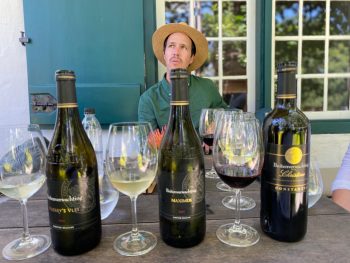
Lee @ AfricanLynxTravel
Platters for lunch can be taken in the tasting room, on the patio, or even on the grass under the spreading trees. The platters are something to behold, groaning with food. There’s charcuterie, of course, and patés, cheeses and preserves, and dips, crackers and breads. There are vegetarian, vegan, and halaal platters – the last two need to be ordered in advance, so be sure to let Constantia Wine Walk know if vegan or halaal is your preference.
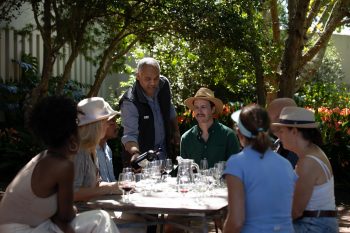
Simon Watson Images
It’s a lot of food, but you deserve it after your strenuous morning.
The tour is 6km long and usually takes four to five hours as an easy walk, including stops for wine tasting, chatting, and a harvest platter lunch at the end. Tours are offered on selected days each week and cost R1,950 per person.
Group tours with tastings at two farms instead of three and created for South Africans, start from R1,000pp. Shorter Groot Constantia tours are also available, starting from R400pp.
For more information, visit constantiawinewalk.co.za, email [email protected] or follow @constantiawinewalk on Instagram.
ALSO SEE: The best wine trails to explore around the world
Written by Lorraine Kearney and originally published on Woman&Home.
Feature image: Klein Constantia/Instagram

